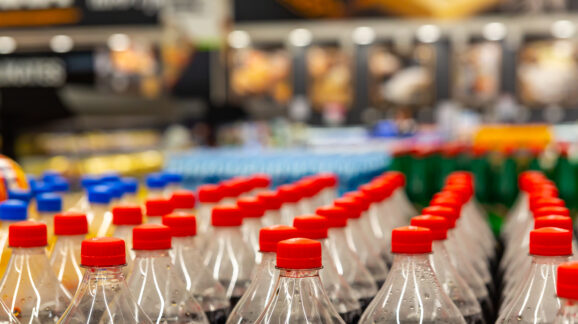Dissolve the Sugar Program

Photo Credit: Getty
Last week, President Trump declared on Truth Social that Coca-Cola had agreed to use cane sugar in its sodas. The announcement comes amid Health and Human Services Secretary Robert F. Kennedy Jr.’s Make America Healthy Again campaign, which has targeted the consumption of corn syrup. Kennedy has even vowed to ban the sugar alternative. In his initial post, Trump did not connect his announcement to Kennedy’s campaign, instead justifying the move to cane sugar by simply saying, “It’s just better.” Rather than discontinuing the use of high fructose corn syrup in its sodas, however, Coca-Cola announced Tuesday that it will be adding a version of its signature drink made with cane sugar to its product line.
Trump and Kennedy’s anti-corn syrup crusade fails to address the fundamental issue with the American sugar industry, though: reckless government intervention through the Sugar Import Program. According to the US Department of Agriculture, “imports of sugar into the United States are governed by tariff-rate quotas (TRQs), which allow a certain quantity of sugar to enter the country under a low tariff.” TRQs apply to “imports of raw cane sugar, refined sugar, sugar syrups, specialty sugars and sugar-containing products.”
These protectionist policies have been reinforced by Trump’s Secretary of Agriculture Brooke Rollins, who announced a “Farmers First” initiative that pushed for blocking specialty sugar imports. Unfortunately, the US does not produce enough sugar domestically to meet consumer demand, and many specialty sugars aren’t produced here at all. Faced with these challenges and the severe restrictions on sugar imports, many food manufacturers have resorted to substitute sweeteners like corn syrup.
This wasn’t always the case, however. Before 1984, Coca-Cola used cane sugar in its American products. The company transitioned to other sweeteners due to protectionist government programs aimed at subsidizing American sugar farmers, such as the Agriculture and Food Act in 1981 and the 2008 Farm Bill.
While supporting domestic sugar production sounds beneficial, it comes at the expense of American consumers who pay approximately $2 to $4 billion for sugar annually. The sugar lobby claims that such policies come at no cost to Americans, but that is simply not true. Americans pay double what their foreign counterparts pay for the same sack of sugar, all so that fewer than a thousand farms can stay in business.
There is no reason that taxpayers should prop up an industry that is comparatively unproductive. Just as the government did not subsidize the milk delivery industry to protect milkmen from competition from grocery stores, it should not subsidize the sugar farming industry to protect farmers from competition from more affordable foreign sugar.
As inefficient and unfair as the Sugar Program may be, the Sugar Association has more incentives to lobby than its opponents. It is in the best interest of sugar farmers to keep protectionist policies, as the benefits are concentrated among a handful of farmers. On the other hand, the average American only pays $7 to $11 a year to keep the program afloat, meaning that lobbying against the sugar program yields little reward. The costs are dispersed across the large population. Therefore, any attempt to curb the program has been limited by the lack of financial incentives for doing so.
Thus, Coca-Cola is incentivized to keep using a cheaper alternative to cane sugar: corn syrup. Due to massive government subsidies for corn farmers, the price of corn syrup is kept artificially low compared to sugar. Under this program, many people face a loss: consumers who enjoy Coke made with sugar, American taxpayers who unknowingly pay for someone else’s farm, and manufacturers who face inflated input costs when the President demands they change their recipe. Sugar farms, which make up only 0.2 percent of all farms, gain exclusive access to markets and artificially inflated prices. Yet, the system of unfair sugar production still exists by hiding these truths.
In the US, Mexican Coke (which uses cane sugar) is treated as a premium product, although sugar isn’t rare. Excessive intervention in the economy through tariffs and subsidies creates artificial scarcities of common goods, much like how the Soviet Union created scarcities of basic goods such as bread. Sugar shouldn’t be scarce, but the Sugar Program makes it so.
Beyond the negative economic effects of the Sugar Program, American consumers should be free to make choices regarding their food and drink preferences (even if their decisions may not be the healthiest option), and businesses should be free to use the optimal ingredients to meet consumer demand. Rather than demanding changes to recipes, the US government should dissolve its unjust, harmful Sugar Program and leave soda and confection companies alone.